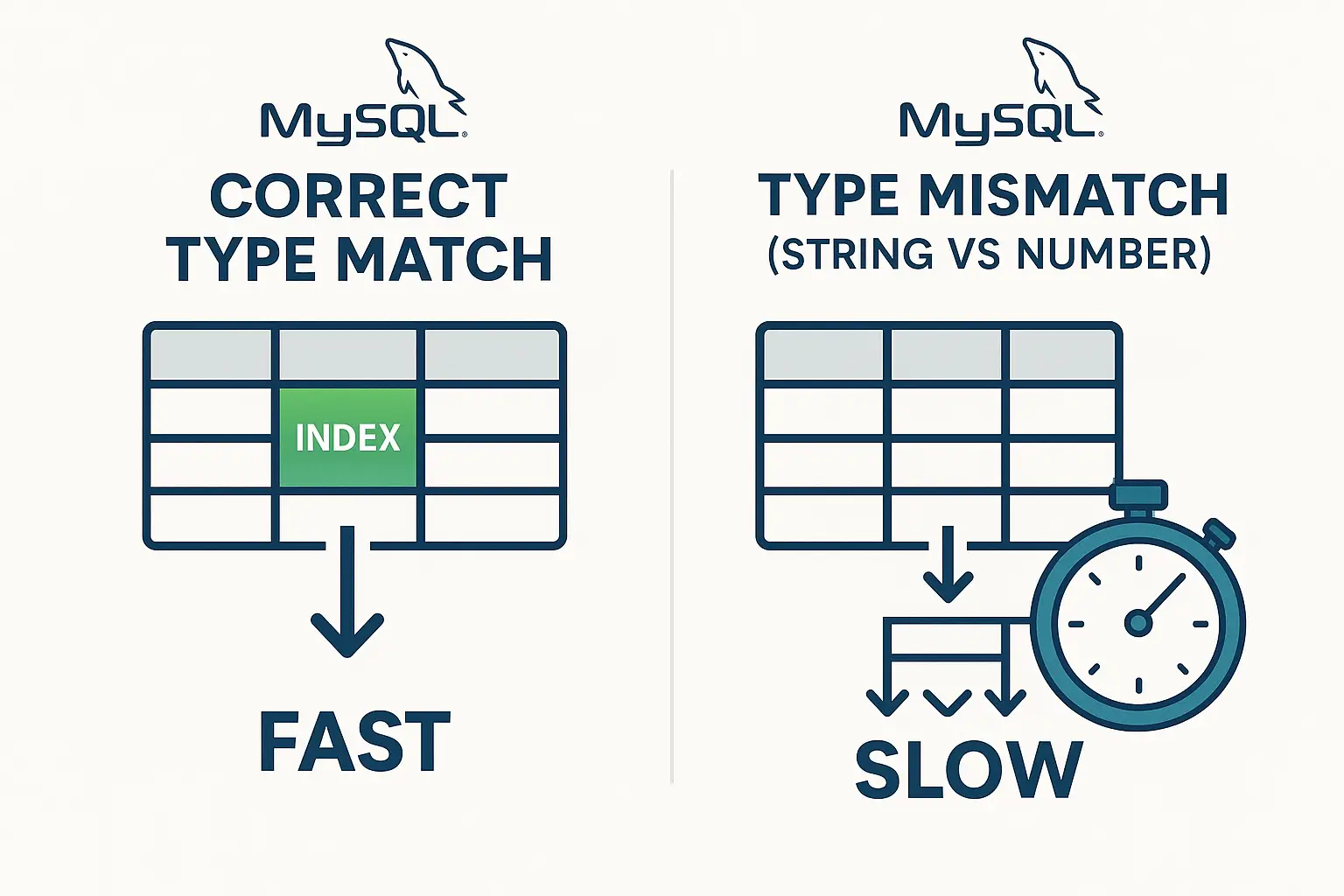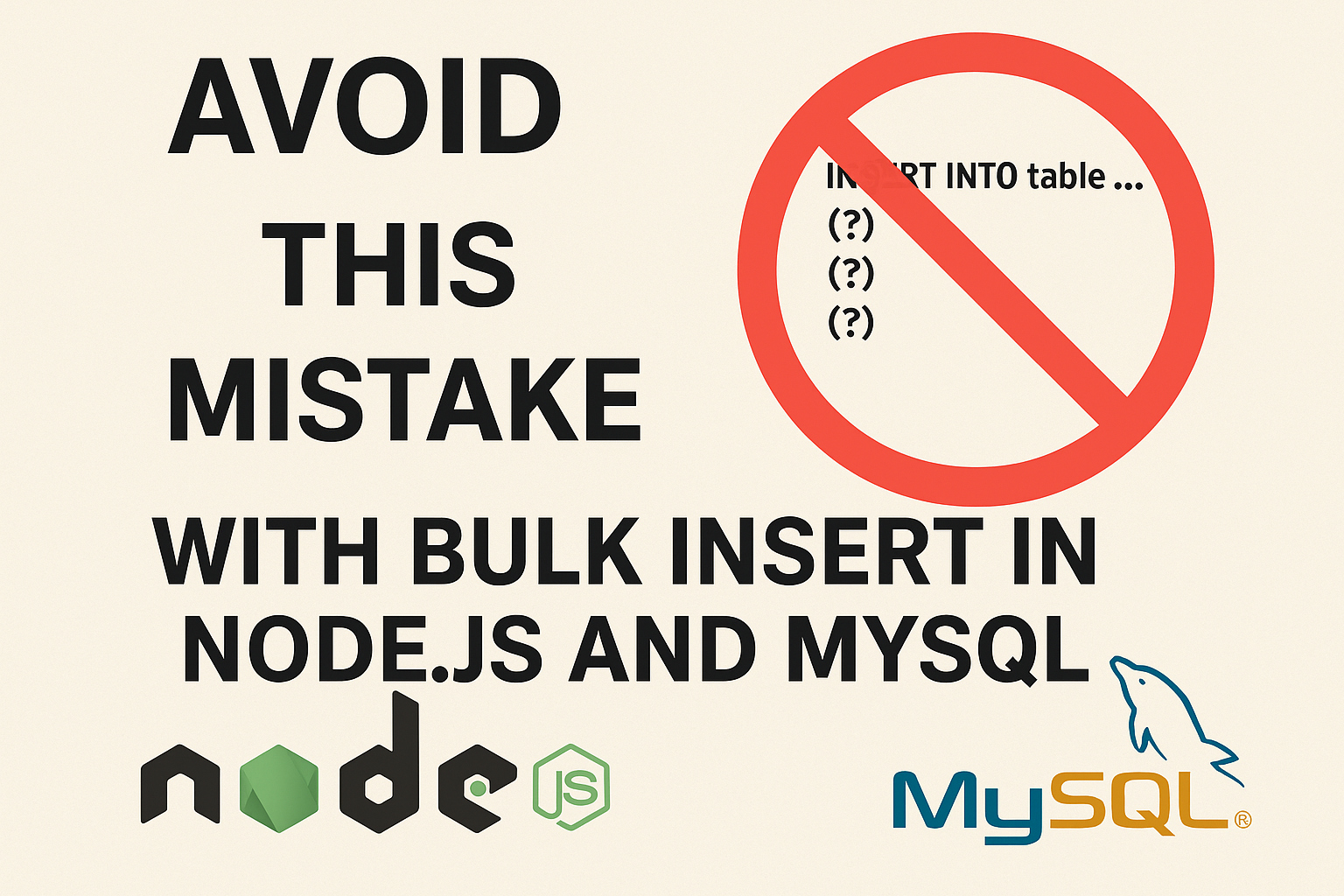MySQL Indexes: Boosting Query Performance with Column Order
In MySQL, the order of columns in a composite index (an index that spans multiple columns) matters. The index is optimized based on the order of the columns, and this affects how MySQL can efficiently use the index for different queries. Let’s break down the two scenarios and how they perform differently based on the query.
Index 1: CREATE INDEX index_name ON table_name (column1, column2);
- This creates an index on
column1as the leading (first) column andcolumn2as the second column. - This index will optimize queries that:
- Filter by
column1. - Filter by both
column1andcolumn2. - Use a range condition on
column1, such asBETWEENor>.
Query: SELECT * FROM table_name WHERE column1 = 'xx';
- This query can fully utilize the index, as it starts with
column1, which matches the leading column in the index. - MySQL will use this index to quickly find rows where
column1 = 'xx'without having to scan the entire table.
Query: SELECT * FROM table_name WHERE column2 = 'xx';
- In this case, MySQL cannot use the index efficiently. Since the index starts with
column1, MySQL cannot skip tocolumn2without first filtering bycolumn1. - As a result, MySQL would perform a full table scan or possibly use another index (if available) to filter
column2 = 'xx'.
Difference in Index Usage
- Leading Column Matters: MySQL can only use the index if the query filter matches the leading column of the composite index. If the filter does not involve the leading column, MySQL will not use the index.
- Index Efficiency:
- Index
(column1, column2)is optimized for queries filtering bycolumn1or bothcolumn1andcolumn2. - Index
(column2, column1)is optimized for queries filtering bycolumn2or bothcolumn2andcolumn1.
Summary of Query Performance
| Query | Index on (column1, column2) | Index on (column2, column1) |
|---|---|---|
SELECT * FROM table_name WHERE column1 = 'xx'; | Efficient (Uses the index) | Inefficient (Full table scan) |
SELECT * FROM table_name WHERE column2 = 'xx'; | Inefficient (Full table scan) | Efficient (Uses the index) |
SELECT * FROM table_name WHERE column1 = 'xx' AND column2 = 'yy'; | Efficient (Uses the index) | Efficient (Uses the index) |
Conclusion
It means, in our system, let’s check the index first, see its order, and place the arguments in the correct place, it will typically increase the query performance without spending more effort.
- If you query
column1frequently, the index on(column1, column2)will work well. - If you query
column2more often, then the index on(column2, column1)will be more efficient. - Composite indexes are highly order-dependent, and you should choose the column order based on which columns are more frequently queried or filtered.
Read more: https://dev.mysql.com/doc/refman/8.4/en/mysql-indexes.html





